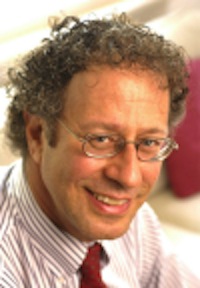It Takes More Than a Pill to Heal From Depression
“To optimize the function of the healing system, you must do everything in your power to improve physical health, mental/emotional health, and spiritual health… One must see the whole picture of health, and understand the importance of working on all fronts.”
Andrew Weil, Eight Weeks to Optimal Health
Even though my agitated depression had been triggered by an adverse reaction to an antidepressant, I decided to seek psychiatric help in the hopes that the right medication might reverse the harm caused by the wrong medication. For the next nine months I met with a variety of psychiatrists who worked in locations that ranged from the local medical school to community mental health centers. Despite the wide array of their professional habitats, each doctor followed more or less the same procedure.
After listening to my symptoms for fifteen to twenty minutes, the psychiatrist would hang a dartboard on the wall whose face was divided into six regions–the red represented Prozac, the orange Zoloft, the yellow Paxil, the green Celexa, the blue Lexapro and the purple was Effexor. Then he threw a dart at the dartboard and wherever it landed, that was the medication I would take.
This, of course, is a metaphor for the way in which medications are randomly chosen. I could not fault the psychiatrists for this methodology, as this trial and error approach was the best that science had to offer. One psychiatrist was quite honest with me when he said, “We really don’t know how a person will react until he takes the drug. You’re all a bunch of guinea pigs.”
In addition to this trial and error approach, the other aspect of the sessions that concerned me was the medicalization of my illness. At no time did any of the doctors ask about my life as a whole–i.e., “How is your social support?” “Are you exercising?” “How do you see this episode spiritually?” I find this fascinating because the Greek roots of the word psychiatrist mean “healer of the soul.”
When I saw my first shrink in 1968, he explored my unconscious through dreams and free association and asked me about my family upbringing–in other words, he did therapy. Now psychiatric treatment is primarily concerned with finding the right drug for an imbalanced brain. The doctor-healer has become the pharmacologist.
Unfortunately, despite trying one antidepressant after another, I experienced none of the hoped-for relief. Often, the drugs made me more agitated, further exacerbating my existing anxiety. Thus, I was eventually diagnosed with “treatment resistant depression.”
However, even if I had found the right medication, it would not have been enough. The mind and brain are far too complex to be regulated by a single chemical. Those who rely solely on medication can experience “Prozac poop-out,” where the medication stops working for no apparent reason.
In other cases, a person goes off an antidepressant, has a return of symptoms, and then goes back on the medication only to find that it does not work the second time. Only in the Aldous Huxley’s Brave New World does a single substance, SOMA, induce happiness each and every time it is ingested. Yet Huxley viewed this pill-popping of society as a dystopia, one that replaced self-knowledge and self-awareness with mindless bliss.
The reason that medications alone will never be enough to treat depression is that depression has biological, psychological, social, and spiritual dimensions and thus must also be treated on all of these levels. This realization lead me to create a five part “brain wellness plan” which consists of physical self-care, mental-emotional self-care, social support, spiritual connection, and lifestyle habits.
In working with my clients, I have observed that those individuals who incorporate two or more of these modalities into their lives recover sooner and have fewer relapses than those who rely on medication alone.



No comments:
Post a Comment